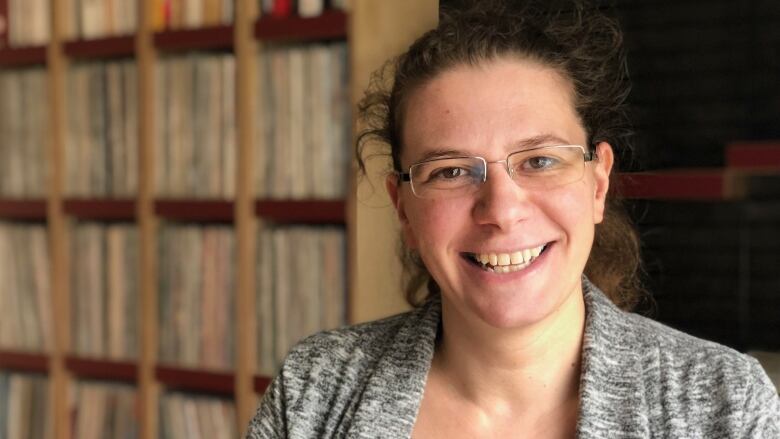Laurentian prof adapting language assessment tool for Franco-Ontarians
Sophie Laurence hopes tool will help speech pathologists better serve francophone stroke patients

Francophone stroke patients in our region could soon have a better diagnostic tool to help assess their language abilities as they recover.
For years, Sophie Laurence has been thinking about the dearth of diagnostic tools for francophone patients. So now Laurence, a registered speech language pathologist and assistant professor at Laurentian University, is aiming to fill that void.
Along with graduate students, she's been working since 2018 to adapt the Western Aphasia Battery a language diagnostic tool typically used to assess adults who have had strokes, but which can also be used for people with acquired brain injuries or with dementia.
"I was just curious to see if we could adapt that test to French, but the French from Ontario. Because it's a different French from the one from Quebec. And it's definitely different from the one from France or Belgium," Laurence said.
The adapted version will take special care to include vocabulary and expressions common among a largely bilingual Franco-Ontario population.
Filling a gap
While Laurence began working on the project with a graduate student in 2018, she said the idea had been on her mind for much longer.
"I did a placement at a hospital and we worked with bilingual patients and realized the lack of tools to work with these patients," Laurence said.
She said many speech language pathologists do their own translations of diagnostic tools, and do informal assessments. However it's not possible to accurately score a person's language level, because the "norms" or benchmarks associated with the test were developed with an Anglophone control group.
Laurence said French tools are lacking broadly speaking. But she is specifically focused on adapting a tool for the Ontario context. Simple vocabulary differences can make a big difference when assessing a person's language abilities, with a test that includes tasks like matching images and words, repetition, and filling in blanks.
It's a different French from the one from Quebec. And it's definitely different from the one from France or Belgium Sophie Laurence
Laurence herself has adapted to Franco-Ontarian words and expressions since moving to Canada from France close to two decades ago. She still has memories from her hospital placement, where the importance of understanding regional word use became very clear. Like the time when an answer was supposed to be"harmonica,"and her patient answeredwith "music bouche" roughly translated to "mouth music."
"I wasn't too sure if I could accept a word," Laurence said. "And then the speech language pathologist who was my supervisor told me, she's bilingual, and she told me she said 'yeah, yeah it's a word that's used in northern Ontario, some people use it.' And I had no idea, I had never heard it."
Next steps
Laurence and her students have now completed the translation of the Western Aphasia Battery, a process thatincluded a test with a small group of Franco-Ontarians, who provided feedback and suggestions.
Now, work is underway to determine the "norms" by testing the tool with control groups of both neurotypicalpeople, and those who have had a stroke.
Laurence said she hopes to have the final version complete in 2023.












_(720p).jpg)


 OFFICIAL HD MUSIC VIDEO.jpg)
.jpg)



























































































